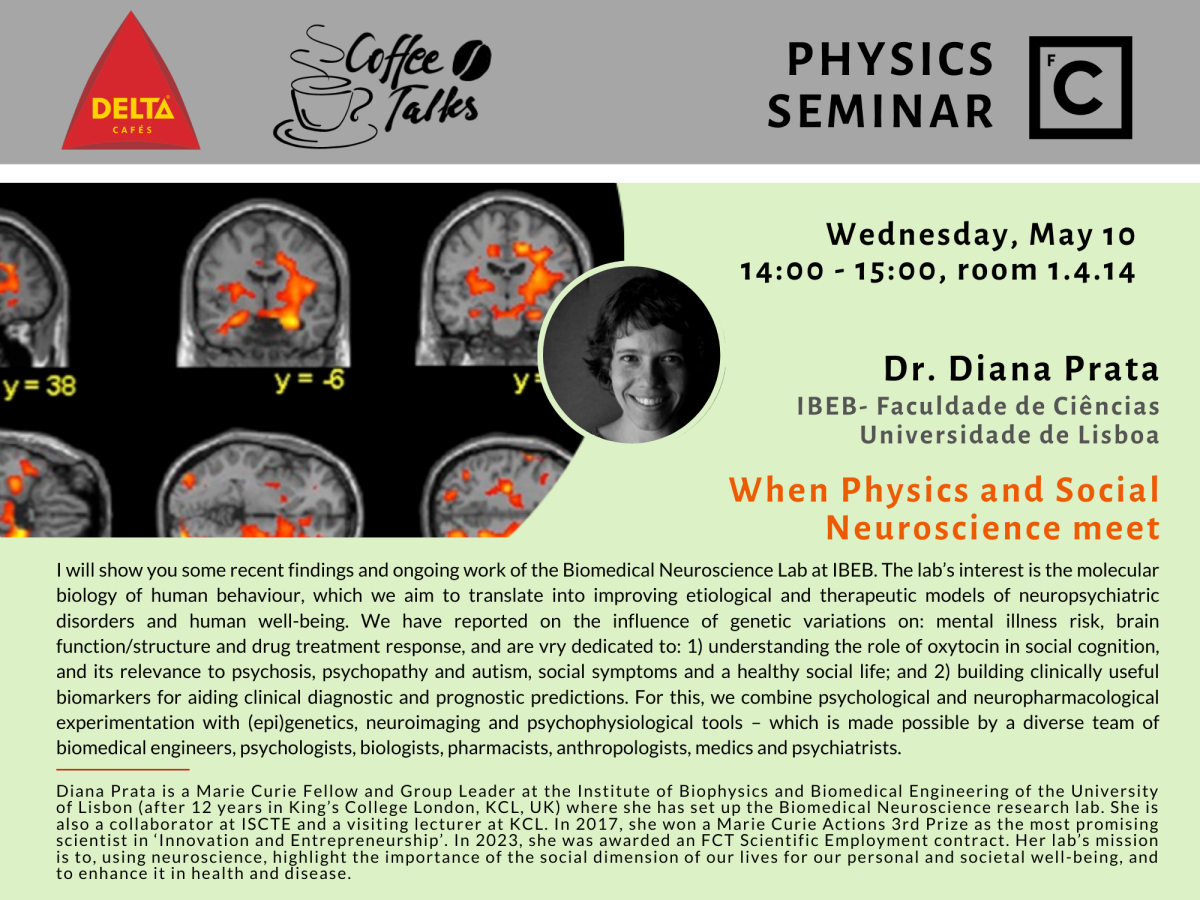Por Diana Prata (IBEB - Faculdade de Ciências da Universidade de Lisboa).
I will show you some recent findings and ongoing work of the Biomedical Neuroscience Lab at IBEB. The lab’s interest is the molecular biology of human behaviour, which we aim to translate into improving etiological and therapeutic models of neuropsychiatric disorders and human well-being. We have reported on the influence of genetic variations on mental illness risk, brain function/structure, and drug treatment response, and are very dedicated to: 1) understanding the role of oxytocin in social cognition, and its relevance to psychosis, psychopathy and autism, social symptoms and healthy social life; and 2) building clinically useful biomarkers for aiding clinical diagnostic and prognostic predictions. For this, we combine psychological and neuropharmacological experimentation with (epi)genetics, neuroimaging and psychophysiological tools – which is made possible by a diverse team of biomedical engineers, psychologists, biologists, pharmacists, anthropologists, medics, and psychiatrists.
Short bio: Diana Prata is a Marie Curie Fellow and Group Leader at the Institute of Biophysics and Biomedical Engineering of the University of Lisbon (after 12 years at King’s College London, KCL, UK) where she has set up the Biomedical Neuroscience research lab. She is also a collaborator at ISCTE and a visiting lecturer at KCL. In 2017, she won a Marie Curie Actions 3rd Prize as the most promising scientist in ‘Innovation and Entrepreneurship’. In 2023, she was awarded an FCT Scientific Employment contract. Her lab’s mission is to, using neuroscience, highlight the importance of the social dimension of our lives for our personal and societal well-being, and to enhance it in health and disease.


